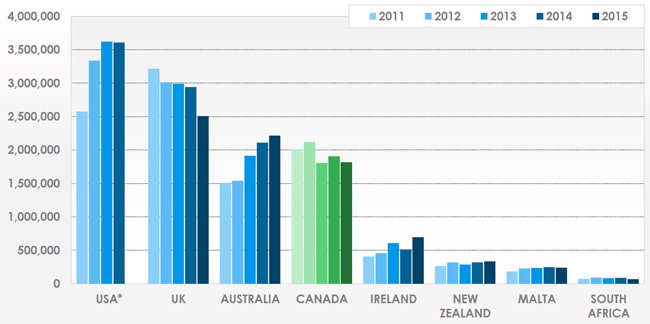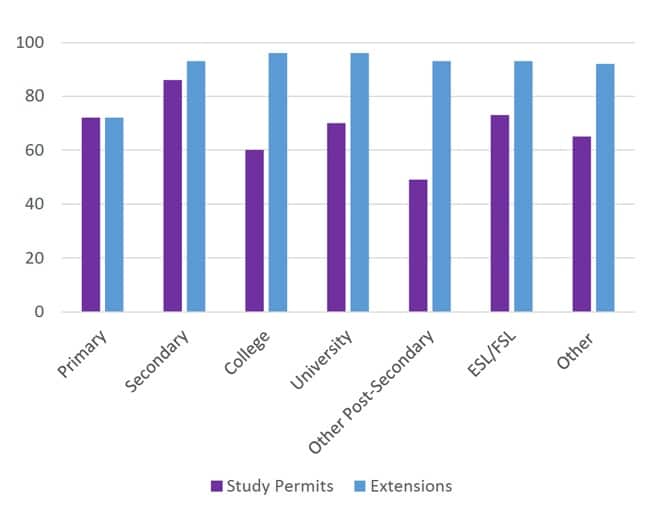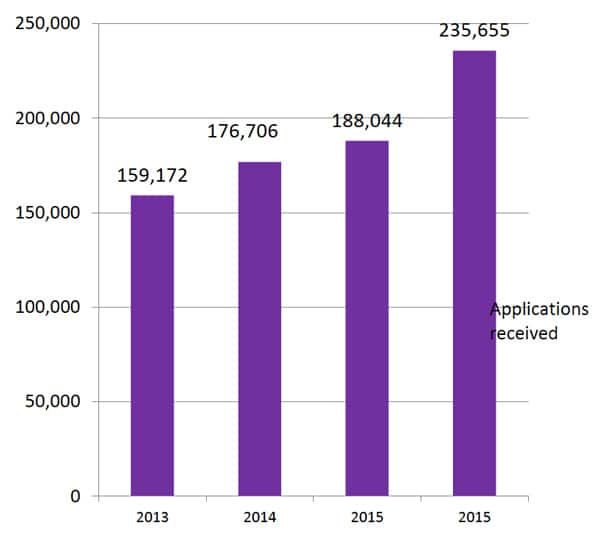Canada: Optimistic outlook for foreign enrolment in 2017
Official figures for 2016 won’t be available until later this year but attendees at the annual Languages Canada conference, held this week in Quebec City, came away with plenty of reasons for optimism that international student numbers in Canada will be trending up through 2017.
In a seminar that closed the official conference programme, StudentMarketing CEO Samuel Vetrak forecast a bright future for Canada’s competitive position in international education markets. He particularly noted improvements in student visa processing, attractive currency exchange rates, a consistent marketing effort by Canadian recruiters in key sending markets overseas, and a global political context - notably international reaction to the new Trump administration in Washington - that are all expected to boost Canada’s attractiveness as a study destination this year.
The point was echoed during a special panel of Canadian trade commissioners held earlier in the week. Representing Canadian embassies in Brazil, Colombia, Panama, and Mexico, the trade representatives all indicated a growing interest in Canada as a study destination. Michael Bailey, senior trade commissioner at the Canadian Embassy in Mexico City reported a dramatic increase in attendance at Canadian education fairs in Mexico this year.
"Canada is now the destination of choice for Mexican students," he said, pointing out that the favourable exchange between the Mexican peso and the Canadian dollar and the easing of visa requirements for Mexican visitors in 2016 would be important drivers of increased Mexican tourism and study travel to Canada in 2017.
The strengthening outlook for inbound mobility to Canada comes against the backdrop of two contrasting trends. The total number of foreign students in Canada grew by 92% between 2008 and 2015, and by 8% between 2014 and 2015 alone. There is every indication that that upward trend continued through 2016, even with notable pressure on some important sending markets for Canadian educators, such as Brazil and Saudi Arabia.
Within that overall trend of increasing enrolment, however, Canada’s ELT (English Language Teaching) sector saw a decline last year, with student numbers falling off nearly 3% and student weeks down by almost 5% compared to the year before.
As the following chart reflects, Canada was the fourth-ranked ELT destination in 2015, a year in which other receiving countries, Australia and Ireland in particular, saw real enrolment growth in English language programmes.



Most Recent
-
New Zealand announces strong foreign enrolment growth along with a new international education strategy Read More
-
The surging demand for skills training in a rapidly changing global economy Read More
-
US issues corrected student visa data showing growth for 2024 while current trends point to an enrolment decline for 2025/26 Read More


















